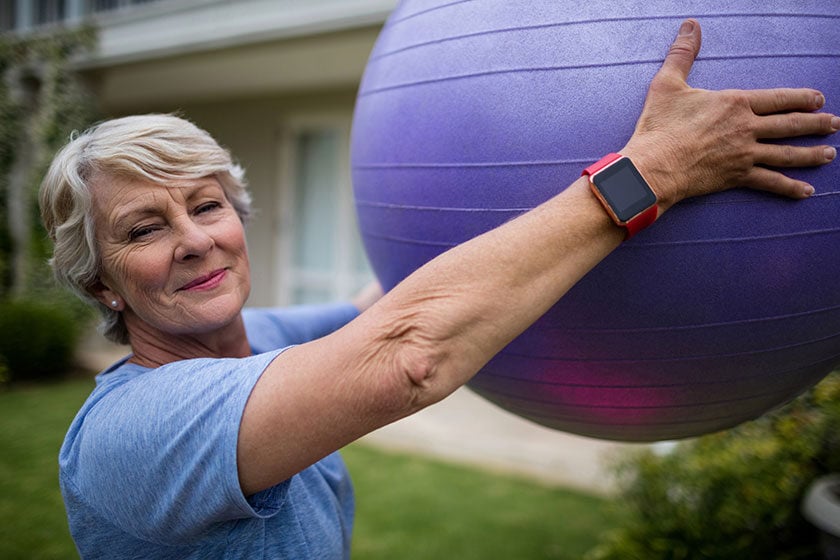Is It Harder To Lose Weight After 50? Strategies And Insights

Many people notice that losing weight becomes a tougher battle as they get older. If you're asking yourself, "Is it harder to lose weight after 50?" the answer is yes. However, understanding the reasons behind this and learning how to address these challenges can greatly help. This article delves into the biological shifts that occur past 50 and offers actionable advice for effective weight management.
Understanding Metabolic Changes After 50
First, let us understand the metabolic changes your body goes through after hitting 50.
The Role of Metabolism
As we reach our fifties, our bodies undergo various metabolic changes. The metabolism naturally slows down, reducing the number of calories we burn at rest and during activity. This decline is partly due to muscle loss, which typically accelerates with age. Since muscle tissue burns more calories than fat tissue, its reduction lowers our metabolic rate.
Hormonal Adjustments
For women, menopause brings about significant hormonal changes that can impact weight. The decline in estrogen levels can lead to increased body fat, especially around the abdomen. Men also experience hormonal shifts, including decreased levels of testosterone, which can lead to muscle loss and increased body fat.
Effective Weight Management Strategies
Now that we know how our body ages with age, here are some effective strategies to manage your weight.
Emphasize Protein and Fiber
Incorporating more protein and fiber into your diet is crucial. Protein helps preserve muscle mass and promotes satiety, which can prevent overeating. High-fiber foods, meanwhile, not only keep you full longer but also help stabilize blood sugar levels, reducing the likelihood of energy dips and cravings.
Strength Training
To combat muscle loss, incorporate strength training into your routine as it can increase muscle mass, thereby boosting your metabolic rate. Aim for at least two strength-training sessions per week.
Focus on Sleep and Stress Management
Poor sleep and high-stress levels can hinder your weight loss efforts. Both can affect your hormones, such as cortisol, which can lead to weight gain when elevated. Prioritize getting quality sleep per night and use stress-reduction techniques such as meditation, yoga, or deep breathing exercises.
Low-Impact Cardio
Low-impact cardio exercises such as walking, swimming, or cycling are easier on the joints and still very effective. These activities help burn calories and improve cardiovascular health without the strain that high-impact exercises can place on the body.
Regular Physical Activity
Consistency is key when it comes to physical activity. Aim for a minimum of 150 minutes of moderate-intensity aerobic activity or 75 minutes of vigorous-intensity aerobic activity per week, as recommended by health experts.
Mindful Eating
Practicing mindful eating can significantly affect how much you eat. This practice involves paying close attention to the experience of eating, savoring each bite, and listening to your body’s hunger cues. Mindful eating helps prevent overeating by improving your body's satiety signals.
Hydration
Maintaining hydration is crucial for metabolism and overall health. Sometimes, thirst is confused with hunger. Ensuring you drink enough water throughout the day can prevent unnecessary snacking and support metabolic processes.
Consult a Dietitian
A registered dietitian can offer personalized dietary advice and meal planning tailored to your specific health needs and weight loss goals. They can help you navigate the changes in your body and find effective, sustainable strategies for weight management.
Join a Community
Joining a community or group focused on similar health goals can provide motivation and accountability. Whether it’s a local walking group or an online forum, connecting with others facing similar challenges can be incredibly supportive.
Healthy Aging: Weight Management After 50
While it is indeed harder to lose weight after 50 due to natural biological changes, adopting specific strategies tailored to your new needs can help you manage your weight effectively. Focus on building muscle, eating a balanced diet rich in protein and fiber, managing stress, and maintaining regular physical activity. With the right approach, you can achieve and maintain a healthy weight at any age.
At our retirement community, we understand the unique challenges that come with aging, and we are committed to helping our residents manage their weight and overall health. We offer exercise classes to help build muscle and improve fitness, and our meal plans are designed to be nutritious, focusing on protein and fiber to meet the dietary needs of our residents. Additionally, we provide various activities to help manage stress and promote a well-rounded lifestyle.
If maintaining or achieving a healthy weight is a priority for you or your loved one, we invite you to contact us today to learn more about how our programs can support your health goals and to arrange a visit to our community.
